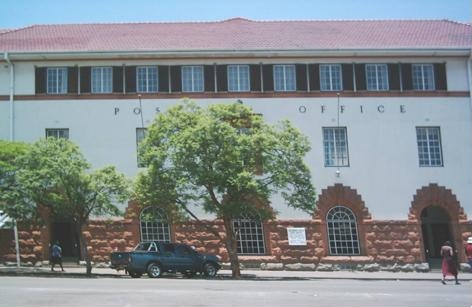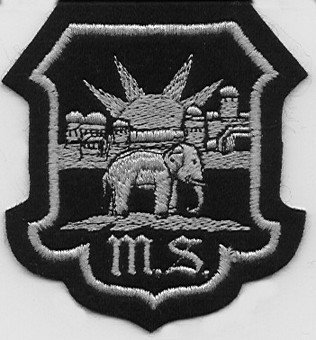Memories Other - a collection of stories growing up in Bulawayo from the class of 54
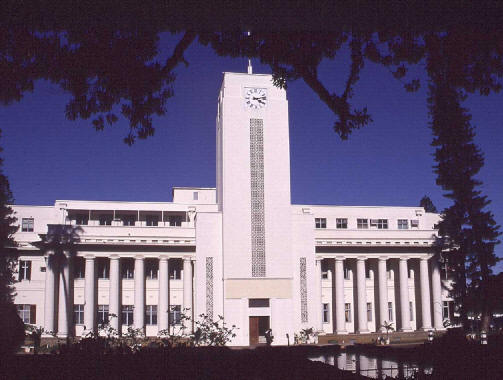

Brian Smeeton
We were certainly fortunate to have grown up in Rhodesia during the years after the war. Life was tranquil and the living was easy, albeit simple.
Discipline was strict but we had so much freedom to go where and when we pleased, if mainly by grid (bicycle). The bush, specially the Matopos and its Gordon Park scout camp were simple pleasures that we took for granted. How I wish we could go back to those halcyon days.

Dave Stephen
Flying ants around streetlights – and everything else resembling a light – after the rains.
The smell of the earth after the first rains.
The Matseumhlope in flood.
Walking the dogs on the banks of the Matseumhlope (when not in flood) – and along the golf course and Winnie’s Way.
Strip roads and low level bridges – especially in the rainy season.
Matopos.
Riding down Selborne Avenue with the Jacarandas in bloom.
Rhodes Centenary Exhibition – and freezing while attending evening shows.
Cycling everywhere.
Fishing expeditions to Hillside Dams – the fish used to laugh at us.
Fox and Bookless’ mule driving transport.

Ron Crittall
Being one of the first families to move into the then new suburb of Famona. It would have been 1947/48. We faced out across what had been the old pastures of a dairy farm, either side of an arm of the Matsheumhlope (sp??). The old farmhouse was still there facing on to Hillside Road, there were some pomegranate trees (part of a hedge?) and a windmill which gradually disintegrated. The Fox and Bookless mules and donkeys, for pulling the carts and wagons that were still in use, used to be brought here on Sundays, for grazing.
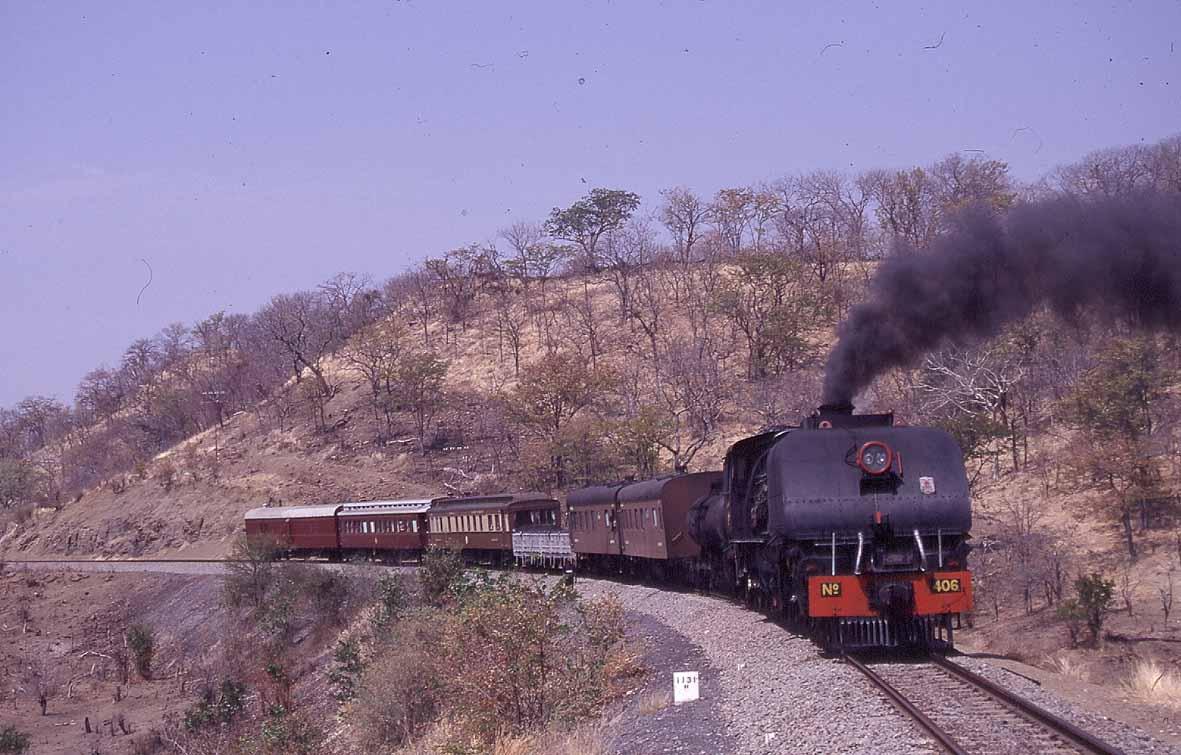
In those days the Salisbury railway line still looped around between the city and Suburbs (what an imaginative name for a suburb), across the river, and then parallel to what was then 15th Avenue along to the second longest railway platform in the world. And we still had steam, with those wonderful Garratt engines.
And all the rainfall ran down the dual dips (gullies, gutters, moats?) on either side of the avenues. Remember trying to freewheel (feet raised high) through these and running out of momentum in the middle? And we had those ornate street lights set in round concrete blocks in the middle of the intersections, so if there were several cars trying to turn right you could get gridlock.
What were the streets? Borrow (past Coghlan, Milton Junior, the swimming baths, and Eveline), Wilson (the Vic), Grey (Downings Bakery), Rhodes (blocked by the City Hall), Fife (Haddon and Sly), Abercorn (Meikles and OK, and Palace Theatre), Main (Grand Hotel, Post Office), Fort and Lobengula (High Court and the Convent). All those name have gone – except Main, and Lobengula?
Matopos was a somewhat distant, special picnic-day distance away. Going along strip roads, over one way low level bridges, then up that ever-so-steep hill (so it seemed then) to the Matopos Hotel with its gleaming red polished verandahs. We stayed several times at the hotel, once or twice when the dam was full (now a remote memory) and the sailing club in full swing. And climbing Efifi and Selozwe.
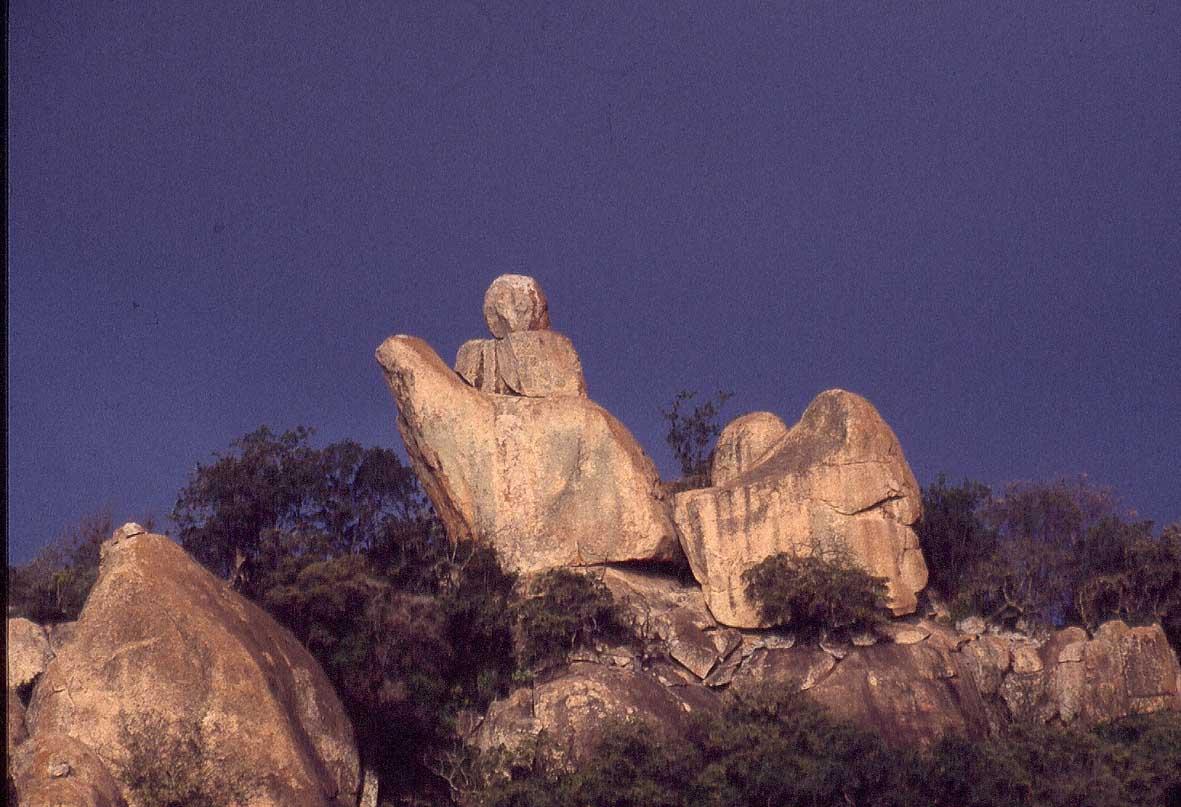
I remember the visit of the Queen Mother and Princess Margaret for the Rhodes Centenary in 1953, and they opened the Exhibition between Selborne and 4th Avenues. There was a commemorative service at World’s View with a procession up the long route which had been taken by the ox wagon bearing Rhodes’ coffin. I was a server at St John’s in those days so led the procession, carrying a glass-enclosed candle-holder (lent by St Mary’s because the Anglicans didn’t have an outdoor version). And we got all sorts of special, unheard-of, culture with the Exhibition – George Formby (culture??) and the wee Scotsman (what was his name?), the ballet Pineapple Poll, and I seem to remember an orchestra – and Royal Shakespeare??
The orchestra was the Halle, and apparently they played a composition by Eric Coates (of Dambusters fame), a march called “Rhodesia”. It hasn’t been played much over the last 40 years!
There was the earlier Royal Visit in 1947, with the whole family, the Royal Train, commemorative arches along the route to Government House, and Sir John Noble Kennedy. Of course with that name he had to be Governor.
A later memory, from the early 60s. The MacDonald Club was (I thought) a wonderful idea and institution. Most of the class seemed to have left town (to the big smoke of Bamba Zonke?) and this was a great place to meet people – not just girls. Wonder what’s happened to it?

Don McLean
Bulawayo - at its height in 1953 with the Rhodes Centenary Exhibition, with the Queen Mum and Princess Margaret (what a doll!), my first taste of peri-peri chicken at the Mocambique pavilion, Sir John Barbirolli and the Halle orchestra,
Sadler's Wells ballet, Covent Garden opera, George Formby from Blackpool ('We won't Coop' – FA cup). What a fantastic achievement by such a small town.

Bob Walsh
Ron mentioned the dips, gullies of Bulawayo and Matabeleland. I can remember a Texan on Rhodesia Radio one February saying "You folks have got a great country here, very reminiscent of Texas. But I just can't understand why yo-all build your bridges under water."
My Dad went grey when he was about 40 and I put it down to a gulley or donga. Soon after I got my driving licence the family was returning from a holiday in Durban in our Citroen. I was driving at about 95 between Beitbridge and Bulawayo when suddenly we arrived at an unheralded Matabeleland road bridge (remember, a slab of single lane concrete at the bottom of the donga, just above the riverbed). Jamming on the brakes was out of the question, only holding on tight was in the question. We descended like an F15, bottomed the springs and then ascended like an F15. For several minutes afterwards the silence was broken only by the sound of my little sister crying over her sore neck.
As for the Matopos, one of my memories is a rather gross one. I was in the Third Bulawayo Boysprouts (with John Pugh, Colin Bland, Roy Flowerday, Kenny Gent, Andy Flowers et.al.) and we went camping one Easter in the Matopos. It was a training competition with all of the other Bulawayo Troupes, so there must have been a couple of hundred of us camping at Rowallan Park. The night (or more accurately the 3 a.m.) was rent by a scream and then moans. The youngest, smallest guy there, and he was physically small, had got up for a crap. The latrine was the usual Rhodesian 6' deep trench over which a solid pine plank had been placed. The hole in the plank was man sized and this poor kid had fallen through in the dark. Phwooooor!
One of my nicer memories was driving out to the Blue Hills tea room on the occasional Sunday afternoon. Probably the Blue Hills were only a few hundred feet high but I compare the view with the French Alps. And of course a picnic in the Matopos was always something to look forward to. Do you remember the fish eagles and the buzzards?
Another good thing about Bulawayo then was how safe and ordered a place it was, 24/7.

Donald Strangway
You ask about the Crusaders Group: I do have good memories of my times with them. The leaders were very hospitable and, what I remember most is the get togethers and suppers at the leaders' houses. I did attend one camp at the Matopos. The food left a lot to be desired, but we all had a good time: singing, playing field games and soaking in the cool stream, which was really too shallow for swimming in.
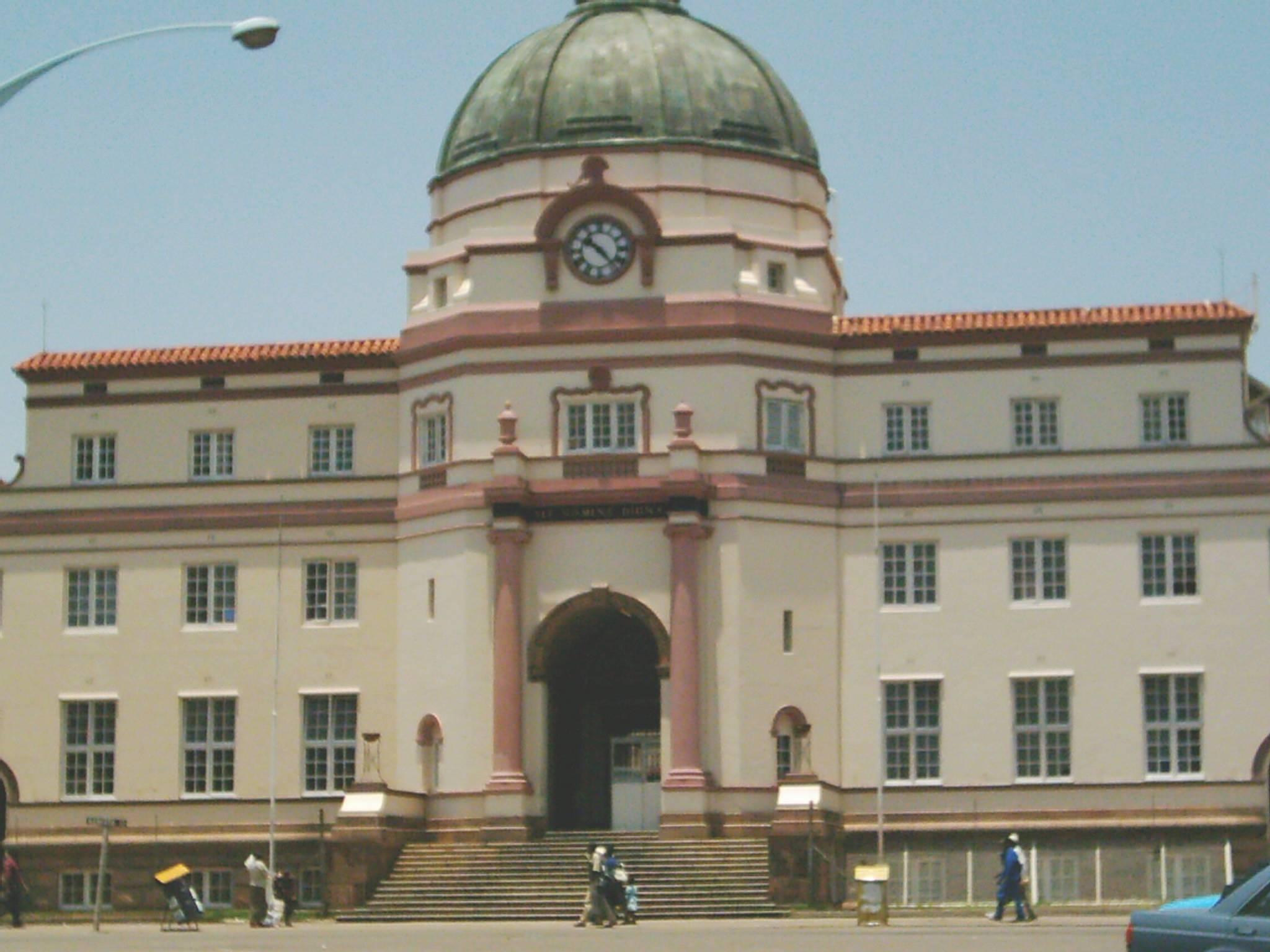

Dennis Stephens
A shilling would get you to a movie on a Saturday, either “The Empire”, “The Palace”, “The 20th Century” or “The Princes” and goodness knows what went on with the Townsend girls at the back of the theatre----or was it Evelyn High?

Geoff Fairall
My father pioneered Hi Fi in Bulawayo giving lunchtime concerts in the small City Hall - mainly popular classics.

Jim Neill
1954 - Fairbridge Memorial College at N’tabas Induna and home from home for a lot of “chooms” (I’m not one, I am from across the border), beautiful sunshine, mopani bush, the hill itself, one of Lobengula’s royal kraals and a place where many of us had an introduction to the Rhodesian bush. Catching snakes and taking them into Byo for Mr. Smithers to pay us according to the length, condition and type of snake. Further afield to the Umzingwane River near Essexvale to try and catch fish and to catch/ release leguaans.

John Pugh
I had lots of time for cadets, hockey, badminton, athletics and my main love, swimming. Swimming is still a major part of my life and instructing in the cadets led me to eventually become a teacher. Dusty Millar introduced me to the delights of opera and I gradually accumulated recordings of the better known ones.
I lived in the same road in North End as Dusty Millar and we rode to school together most days and chewed the fat about contemporary matters. After school we would ride back through the Suburbs so that we could see, and sometimes wave to, the crocodile of Eveline girls wandering back to MacIntosh House. Dusty is my longest standing friend and I can remember visiting his house before we started at primary school.
And another flashback! When I was in Standard 3 at Baines Junior School Ron’s mum was the teacher who confiscated my prize marbles. Hand them over Ron.
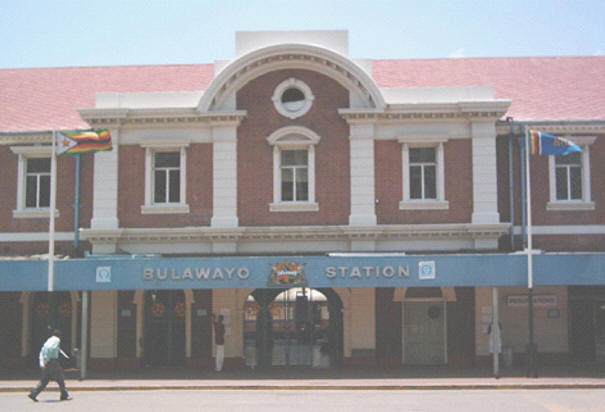

Ken Walshe
Bulawayo was a peaceful and, to be honest, a sleepy town with wide streets and a lovely climate and which at that time I thought was almost the hub of the world -- perhaps second only to Bamba Zonke.

Peter Rothbart
I loved living in Bulawayo and had always expected to spend all of my life there. When I went to medical school, I hoped to come back to work at the Central Hospital (near Milton). I was very disappointed when I realized in about 1962, that the country was going to be very different from anything any of us had anticipated in our school years. It took me many years to get settled. Some of my fondest memories are waking up and seeing the bright sunshine every morning. Some of my best memories are of getting up early with the sunrise and riding my bicycle while the dog ran with me.

Ben Durham
Peter Rollason. Being unmarried, fit and with an attitude which always enabled him to rise to any occasion or die in the attempt, he was, at various times, an adjutant in the Rhodesian defence force, an officer in the Red Cross, played the piano for dances, organised sound recordings of weddings, added sound to the 16 mm cine films of others, produced sound effects for the theatre, commentated at boxing matches, horse racing and any other sport, was an announcer both on radio and TV, compered at such events as school sports days and fetes, acted and even helped to set up the sound and lighting for the Rhodes Centenary Theatre Royal in 1953 (in the process dropped a hammer from a dizzy height, narrowly missing George Formby on the stage below) – and oh, in his spare time he happened to be the President of the Pharmaceutical Society for Rhodesia and Nyasaland. That was my boss.
